NIL
Feasibility of UNCW sports and entertainment arena under review, NIL lawsuit a factor
Trask Coliseum. (Port City Daily/file photo) WILMINGTON — UNCW is in the early stages of developing a new basketball arena and potential concert venue, a step-up for a team increasingly gaining more recognition on the national level. READ MORE: In its infancy, UNCW NIL program is providing athletes money but also real-life work experience Last fall, […]
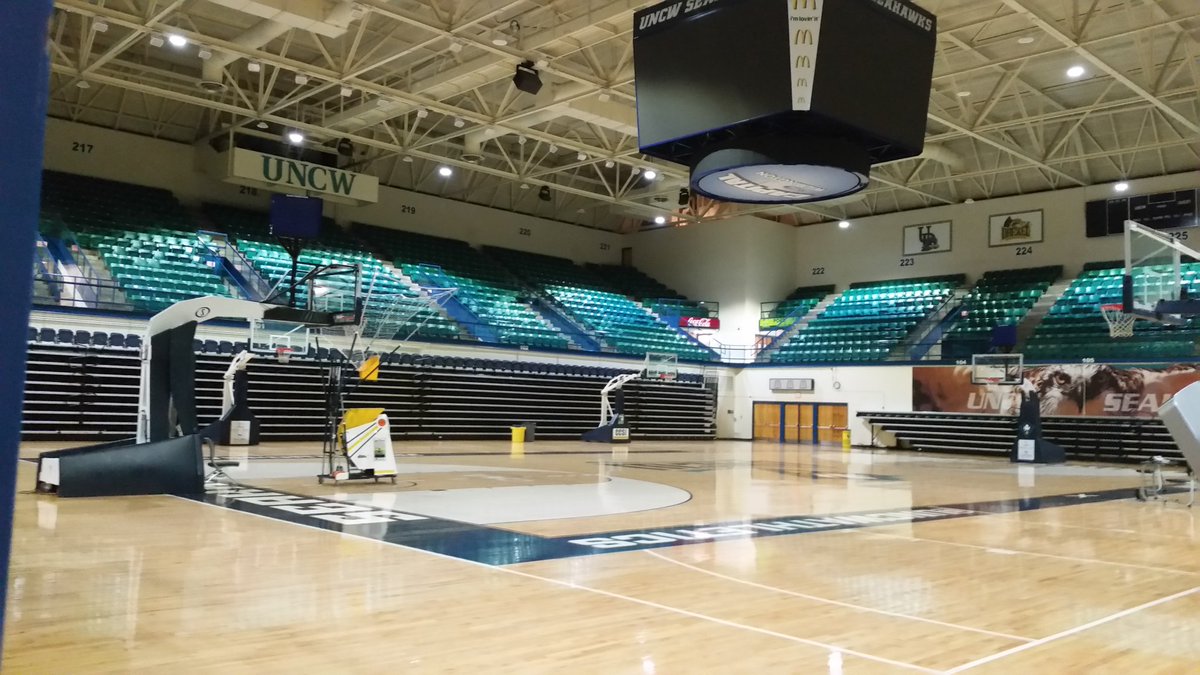

WILMINGTON — UNCW is in the early stages of developing a new basketball arena and potential concert venue, a step-up for a team increasingly gaining more recognition on the national level.
READ MORE: In its infancy, UNCW NIL program is providing athletes money but also real-life work experience
Last fall, UNCW Athletics launched a feasibility study into upgrading Trask Coliseum, either through renovation or a new replacement stadium. The UNCW Board of Trustees approved either option as part of the university’s new 10-year master plan in August 2024.
UNCW hired Conventions, Sports & Leisure Internationl to conduct the study — the evaluation of a new tennis is also included in the scope of work — and provide a report of its funding; the contract is for $90,000.
UNCW’s men’s and women’s basketball teams compete in Trask, built in 1977, only six years after the opening of the college’s oldest dorm Galloway Hall, which was torn down last year.
The most recent improvements to the 5,200-seat venue have been a $2-million renovation in 2011, which included the installation of a video board and LED courtside boards; new LED lighting was installed in 2013. Though structurally sound, the building remains dated, UNCW Athletics Director Mike Oblinger told Port City Daily in an interview on May 30.
“Some of the amenities that other buildings, newer buildings, enjoy — we just don’t have that capability,” Oblinger said. “Mostly it’s around the fan amenities. It’s concessions, it’s food quality; we don’t really have a true area for fans to buy gear and team-shop and things like that.”
Oblinger noted Trask doesn’t offer premium seating options either, such as suites or club seats that offer an enhanced viewing experience for a higher ticket price. As the teams gain more acclaim — the men’s basketball team made it to the first round of this year’s NCAA championship, where it lost to Texas Tech — these coliseum enhancements are aimed at further enriching the fan experience.
The vision for UNCW’s new arena aims to be similar to other NCAA Division I schools in the UNC System, such as UNC Chapel Hill’s Dean. E Smith Center (opened in 1986) and N.C. State’s Lenovo Center (opened in 1999). Both offer multiple concession and merchandise areas surrounding the court, along with other food vendor stands dispersed throughout. The Lenovo Center is also home to the Carolina Hurricanes ice hockey team and regularly books A-list music artists, including Beyonce, Taylor Swift and Post Malone.
CSL is exploring hosting concerts at the new arena, as Trask has done in the past. It has hosted Frank Sinatra, The Righteous Brothers, Darius Rucker and the Goo Goo Dolls.
Oblinger said the team has not decided yet on a new build or renovation, which would displace the teams. Any new structure would have to fall in the general vicinity of Trask’s current 15,000-square-feet footprint at the front of campus.
In fact, UNCW hasn’t decided if it’s moving forward with a new arena at all. Oblinger said a lot of financial decisions, not just at UNCW but across NCAA athletics, are riding on what’s called “the House decision.”
Grant House and Sedona Prince v. National Collegiate Athletic Association, et al is a class action lawsuit against the NCAA and five athletic conferences. Two student athletes sought name, image, and likeness (NIL) damages and an injunction to force the NCAA and affiliated athletic conferences to lift restrictions on revenue-sharing from broadcast rights.
The NCAA voted to settle the lawsuit for $2.75 billion in May 2024 and agreed to a revenue-sharing model, allowing member institutions to distribute up to $20 million to Division I athletes that have played since 2016. It would also allow direct payments from schools to athletes and increasing regulation of NIL deals.
The settlement is an attempt to level the playing field four years after NIL compensation was legalized, meaning student athletes can now make brand deals and get paid. The settlement will curtail high-profile programs from outspending opponents in attempts to attract players and likely reduce the amount of money athletes can earn, particularly from collectives organized by school booster clubs.
Judge Claudia Wilken is expected to rule on validating the settlement any day now. It is supposed to take effect July 1.
“I think if you talk to my peers throughout the country, a variety of facility projects would either be put on hold or paused or eliminated altogether because of the revenue-sharing potential that the House settlement might bring,” Oblinger said.
If approved, athletes will essentially be able to take a cut of the money that comes in from media rights deals, sponsorships and revenue generated from tickets, food and merchandise sold at sports arenas.
“If we’re going to continue on and do a renovation of a building, well, then, that can’t be at the detriment of not having the ability to compete with NIL in that space,” Oblinger said.
In the meantime, CSL and UNCW have sent out a survey to college alumni, season ticket holders and others in the UNCW Athletics database to gauge what they would like to see in a new arena.
Oblinger said they are still reviewing feedback from the survey now and didn’t give many details about it last week. Oblinger did share overall there were positive responses, with everyone in agreement that an update to the coliseum should be made.
Reach journalist Brenna Flanagan at brenna@localdailymedia.com.
Want to read more from PCD? Subscribe now and then sign up for our newsletter, Wilmington Wire, and get the headlines delivered to your inbox every morning.
NIL
Joe Castiglione reveals how much his job changed with transfer portal, NIL
When Joe Castiglione was hired at Oklahoma at athletic director in 1998, there was no way for him to predict how much the NCAA landscape would change during what will end up being a three-decade tenure in Norman. Particularly, in the last decade of his tenure with the implementation of NIL and the NCAA transfer […]

When Joe Castiglione was hired at Oklahoma at athletic director in 1998, there was no way for him to predict how much the NCAA landscape would change during what will end up being a three-decade tenure in Norman. Particularly, in the last decade of his tenure with the implementation of NIL and the NCAA transfer portal.
Castiglione has overseen 26 of Oklahoma’s 45 total national championships, and is OU’s longest-serving AD. He positioned the Sooners for long-term success since the beginning his tenure, and it’s followed into the new era of college athletics. Under his guidance, Oklahoma seen at least one team compete for a national championship in each of the last 12 years.
“One of the most challenging parts of the period that we’re in is, there’s never been a moment like it. Not only in college athletics, I think you could look across various industries, they all go through some moment of disruption and change,” Catsiglione said. “And the ones that see the future, that adapt, pivot, be flexible, those are the ones that navigated, not only survived, but become stronger when they get on the other side.”
The Sooners have done just that, positioning themselves to be at the forefront of college athletics for years to come after aligning with the Southeastern Conference alongside Texas ahead of the 2024-25 academic calendar year. The move came just weeks after it was ruled that athletes could begin compensating from their name, image and likeness.
“We have to be uncomfortable with the uncomfortable period that we’re in, and that’s where we are,” he continued. “So if you’re not willing to lean into it, get scarred up, nicked up and try to find the solutions that are necessary in this moment in time where we’re still not structured the way we should be, … realize sometimes that you don’t have full control of everything, but you better exert as much as you can. Lean into the future and don’t be afraid to be a change agent.”
Those at the forefront of college athletics are the ones who are able to adapt to the current state of college athletics. With just under three years to find Castiglione’s successor, adaptability is likely a quality the Sooners will be looking for in their next athletic director.
“However you want to define the the skills of the next AD, you better be a leader that can lean in, accept and effectuate change of the future,” Castiglione said. “Because if the people in the business don’t do the leading, then who is?”
NIL
Powell Cracks Mid-Major Top 100 Player Rankings
Story Links Rock Hill, S.C. – D1 Softball announced its 2025 Mid-Major D100 Player Rankings and Winthrop standout Megan Powell was ranked 97th. Powell adds more recognition to a season that saw her voted as the 2025 Big South Conference Player of the Year. Powell was also an All-Big […]
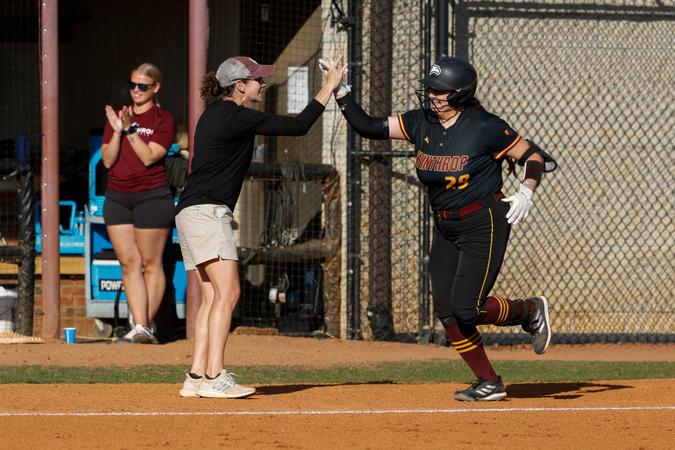
Rock Hill, S.C. – D1 Softball announced its 2025 Mid-Major D100 Player Rankings and Winthrop standout Megan Powell was ranked 97th.
Powell adds more recognition to a season that saw her voted as the 2025 Big South Conference Player of the Year. Powell was also an All-Big South First Team selection, NFCA All-Region Selection and was named to the Big South All-Tournament Team. She also earned academic recognition as she was named to the College Sports Communicators Academic All-District Team.
This year she led the team with a .333 average to go along with 27 runs, seven doubles, 10 home runs, 35 RBI, 22 walks and an on-base percentage of .425. In the circle she was 16-12 with a 2.15 ERA, 16 complete games, five shutouts and 122 strikeouts in 163 innings. She also held an opposing batting average of .206.
Powell was 1-of-2 Big South Conference players recognized, joining Radford’s Dakota Redmon on the list.
The Top 100 rankings list can be found here.
STAY SOCIAL WITH THE EAGLES
For everything Winthrop softball visit www.winthropeagles.com or follow us on social media @Winthropsoftbal, winthropsoftball (Instagram) or www.facebook.com/Winthrop-Softball
NIL
House attorneys argue plan to vet NIL collective deals violates settlement
The attorneys who negotiated a $2.8 billion lawsuit settlement with the NCAA and four power conferences took issue Friday with the way college sports’ new enforcement body plans to vet name, image and likeness payments to athletes from school-affiliated collectives. In a letter to the power conferences and NCAA, obtained by The Athletic, attorneys Jeffrey […]

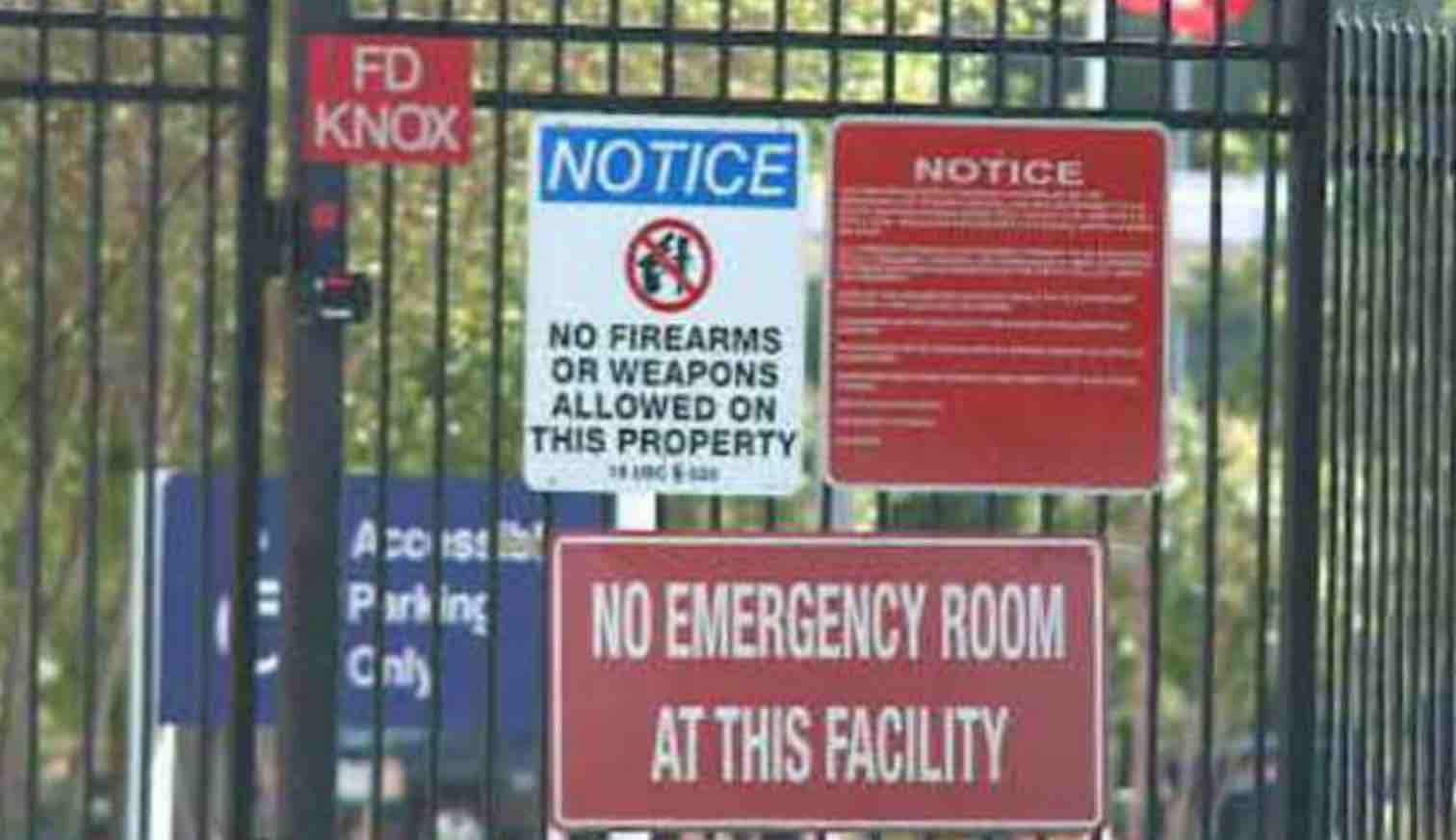

The attorneys who negotiated a $2.8 billion lawsuit settlement with the NCAA and four power conferences took issue Friday with the way college sports’ new enforcement body plans to vet name, image and likeness payments to athletes from school-affiliated collectives.
In a letter to the power conferences and NCAA, obtained by The Athletic, attorneys Jeffrey Kessler and Steve Berman stated that the guidance the College Sports Commission (CSC) issued Thursday violates the terms of the settlement and that it should treat collectives the same as any other third-party business.
Advertisement
“While we want to continue to work together to implement the Settlement Agreement in a cooperative fashion, this process is undermined when the CSC goes off the reservation and issues directions to the schools that are not consistent with the Settlement agreement terms,” the letter said.
Yahoo! Sports first reported the plaintiffs’ attorneys’ letter.
“We urge the CSC to retract the July CSC Memorandum and clarify that the valid business purpose requirement applies to NIL collectives in the same manner as any other entity,” the letter said. “If the CSC does not retract the statement, Class Counsel will have no choice but to pursue relief from the Special Master as the July CSC Memorandum is already causing injury to class members.”
Kessler declined to comment when The Athletic contacted him.
Earlier Friday, the judge overseeing the settlement approved about $750 million in fees for the NCAA and conferences to pay the plaintiffs’ attorneys.
The recently approved House settlement, which took effect on July 1, established a clearinghouse, called NIL Go, that must approve all third-party deals over $600. The two main requirements for those deals are that they’re for a “valid business purpose” and fit within a fair market “range of compensation.”
Officials created those rules to prevent schools from utilizing booster-driven entities to funnel payments to recruits and transfers as a way to work around the $20.5 million revenue-sharing cap.
“The guidance issued by the College Sports Commission yesterday is entirely consistent with the House settlement and the rules that have been agreed upon with Class Counsel. The defendants have been in close coordination with Class Counsel on the key provisions in the memo and will continue to work with them to resolve any concerns they may have,” the CSC said in a statement.
Advertisement
Officials for the Southeastern Conference, Big Ten, Big 12 and Atlantic Coast Conference established the CSC to oversee the revenue-sharing system the settlement created. Schools will be able to directly pay their athletes up to $20.5 million this year.
The NCAA has no involvement with the CSC, enforcement of rules related to the revenue-sharing system or the approval of NIL deals.
Guidance the CSC issued Thursday said “an entity with a business purpose of providing payments or benefits to student-athletes or institutions, rather than providing goods or services to the general public for profit, does not satisfy the valid business purpose requirement set forth in NCAA Rule 22.1.3.”
It then cited an example of a collective that “reach(es) a deal with a student-athlete to make an appearance on behalf of the collective at an event, even if that event is open to the general public, and the collective charges an admission fee (e.g., a golf tournament). … The same collective’s deal with a student-athlete to promote the collective’s sale of merchandise to the public would not satisfy the valid business purpose requirement for the same reason.”
“Today’s commentary from the College Sports Commission regarding ‘true NIL’ and ‘valid business purposes’ is not only misguided but deeply dismissive of the collective organizations and the tens of thousands of fans and donors who fuel them,” The Collective Association, a trade group of prominent collectives from around the country, said in a statement. “Any attempt to delegitimize the role collectives play in today’s collegiate athletics landscape ignores both legal precedent and economic reality.”
In the four years since NIL payments began in 2021, collectives affiliated with specific schools have made hundreds of millions in deals with athletes just like those the CSC described in its examples. They pool funds from donors and boosters and use them to license the NIL rights of specific athletes in exchange for appearances and social media posts.
Advertisement
“There is nothing in the Settlement Agreement to permit Defendants or the CSC, acting on their behalf, to decide that it would not be a valid business purpose for a school’s collective to engage in for-profit promotions of goods or services using paid-for student-athlete NIL,” the letter said.
(Photo: Isaiah Vazquez / Getty Images)
NIL
West Virginia’s Rich Rodriguez appreciates new revenue share ruling, doesn’t care about CFP format
MORGANTOWN — West Virginia’s Rich Rodriguez hasn’t spoken in front of the media in three months, and the rapid space of college athletics has seen massive changes in the time away from the podium. At the start of June, revenue sharing was announced, and more guardrails were applied, with a new College Sports Commissioner picked, […]

MORGANTOWN — West Virginia’s Rich Rodriguez hasn’t spoken in front of the media in three months, and the rapid space of college athletics has seen massive changes in the time away from the podium.
At the start of June, revenue sharing was announced, and more guardrails were applied, with a new College Sports Commissioner picked, in charge of regulating NIL.
With over a decade of experience, Rodriguez witnessed the change of college athletics over the years and was vocal about how there needed to be a change. Now, there have been changes made, and Rodriguez gave his opinion at Big 12 Media Days.
“A lot better guardrails than a month ago,” Rodriguez said. “I mean, it was a cluster for the last three or four years. All coaches are complaining about it, but it was just a mess, and nobody knew how to really solve it right away. And I still think we got it a lot better now with the cap and the rev share. But there’s still a lot of work to do.”
The new ruling isn’t perfect, like Rodriguez said. Paying players directly is a step forward. The College Sports Commission could be too, but there’s no telling how much jurisdiction it’ll have over passing and denying NIL deals without lawsuits. Rodriguez still doesn’t have his one transfer portal window, either, arguably his biggest issue.
There’s still work to do. Rodriguez wants athletic directors and Congress to lead the charge on shaping the future of collegiate athletics.
“Hopefully, smarter minds than myself will get that together,” Rodriguez said. “I said this earlier today, I think they need to get the college athletic directors more input and more say in how college athletics is going to be run because these are the guys and the ladies that know what’s best for the schools and what’s best for the country in college athletics.”
West Virginia’s representative is athletic director Wren Baker. Baker and WVU athletics moved quickly on the new ruling, creating a revenue-sharing company, Gold & Blue Enterprise, to generate money. Big 12 commissioner Brett Yomark said WVU was the first school to integrate Venmo and PayPal to distribute revenue-sharing money. Baker is fully committed and determined that WVU athletics has everything necessary to compete at the highest level.
Rodriguez appreciates the work Baker’s done, and is glad he’s WVU’s athletic director.
“I’ve worked for a lot of really good ADs,” Rodriguez said. “One or two, I wasn’t sure about, but most of the ones I’ve worked with have been great. Wren has as good a grasp as anyone. I’m very fortunate. We’re in good shape with Wren Baker.”
The new court ruling isn’t the only news that’s emerged since Rodriguez’s last press conference after the Gold-Blue Game. There’ve been talks about moving to a 5-plus-11 and 16-team College Football Playoff model in the future, meaning the Power Four conference champions get a bid, the highest rated conference champion, and then 11 at-large bids. Some SEC coaches wanted a 4-4-2-2 system, where the SEC and Big Ten would get four bids each, and the Big 12 and ACC would get two each. The consensus, though, is the 5-plus-11.
Rodriguez cares a lot less about the College Football Playoff than NIL, revenue sharing, and the transfer portal.
“I don’t give a sh*t,” Rodriguez said. “I mean, my give a sh*t meter is a lot less than a lot of stuff. If you win the league, you’re going to be in. Just win the league, like 5-11, all that stuff, whatever. I’m worried about just winning. Let’s win the league. I ain’t worried about, well, this team’s going to vote here, what’s this team going to vote there? If you’re good enough, people will know you’re in the top 12, whatever, it’s good. We win all of our games. I guarantee we’re in the playoffs.”
Rodriguez still has his issues with college athletics, but he’s not alone. There are a lot of coaches in just the Big 12 that have problems. Rodriguez made it clear where he stands and what he wants: more guardrails and one transfer portal. Those changes are looking like they’re coming in the future.
Despite his issues, Rodriguez still loves his main job, coaching WVU to win football games.
“I think we’re in a better place now than we were a month ago,” Rodriguez. “There’s still some work to be done. We could complain as coaches, but hell, it’s still a pretty good gig. You know what I mean? These are good jobs. There are a lot tougher jobs than being a college football coach. So like I said, I’m fortunate and blessed to have what I have.”
NIL
BYU QB Jake Retzlaff Will Withdraw from BYU, Circumvent Transfer Portal
BYU quarterback Jake Retzlaff is withdrawing from school at BYU, he announced on social media. Retzlaff said he opted to withdraw from school “after a lot of prayer, reflection, and conversations with those I trust.” “After a lot of prayer, reflection, and conversations with those I trust, I’ve made the difficult decision to withdraw from […]


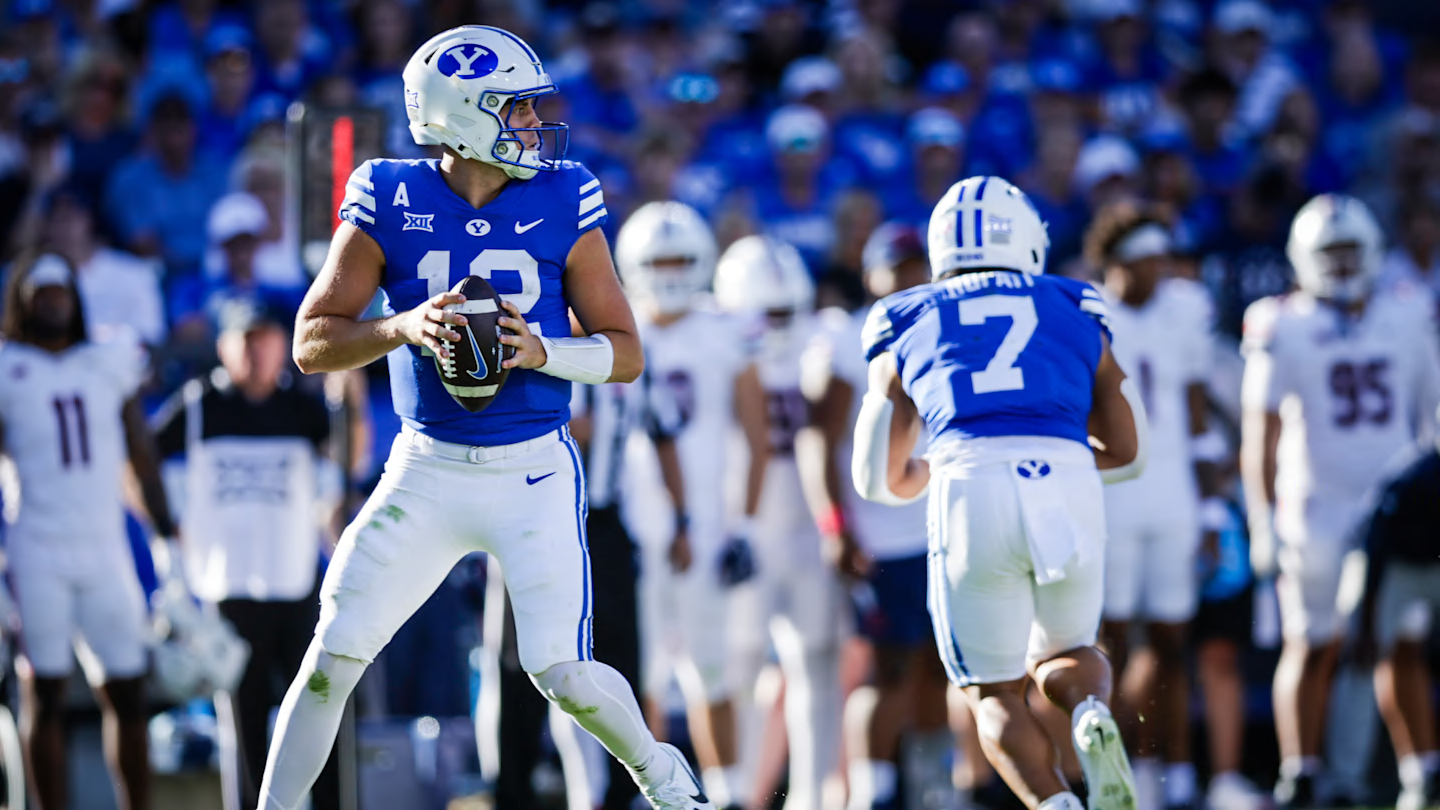
BYU quarterback Jake Retzlaff is withdrawing from school at BYU, he announced on social media. Retzlaff said he opted to withdraw from school “after a lot of prayer, reflection, and conversations with those I trust.”
“After a lot of prayer, reflection, and conversations with those I trust, I’ve made the difficult decision to withdraw from BYU and step away from the BYU football program,” Retzlaff said. “BYU has meant more to me than just football. It’s been a play of growth – spiritually, mentally, and physically. I’m grateful for every teammate, coach, staff member, and fan who’s supported me along the way. The relationships and memories I’ve made in Provo will always be a part of me. That said, I’m excited to turn the page and embrace the next chapter. My journey is far from over – and I’m more motivated than ever to keep chasing my goals.
Retzlaff was facing a suspension for breaking the school’s honor code. Rather than wait out the suspension, Retzlaff opted to finish his college career elsewhere.
BYU athletics released a statment on the situation, saying, “We are grateful for the time Jake Retzlaff has spent at BYU. As he moves forward, BYU Athletics understands and respects Jake’s decision to withdraw from BYU, and we wish him all the best as he enters the next phase of his career.”
Perhaps most notably, Retzlaff will attempt to circumvent the transfer portal. He will “simply enroll at a new school” according to Pete Thamel of ESPN. In terms of where he plans to go next, Retzlaff has not announced his plans.
Sources: Quarterback Jake Retzlaff is withdrawing from school at BYU. He still plans on transferring and is expected to take a transfer path that does not involve the NCAA Transfer portal. He plans to simply enroll at a new school. pic.twitter.com/pEsKXHXgsH
— Pete Thamel (@PeteThamel) July 11, 2025
As for BYU, the Cougars have moved on from Retzlaff and are already planning on a quarterback battle. Returning quarterbacks McCae Hillstead and Treyson Bourguet will battle for the starting spot against incoming true freshman Bear Bachmeier. The winner of the quarterback battle has a chance to be the BYU starting quarterback for the next 2-4 years.
Jake Retzlaff’s production, at least on paper, can probably be replicated by one of the three quarterbacks. In two years at BYU, he threw for 3,595 yards, 23 touchdowns and 15 interceptions while completing 56% of his passes.
What BYU will miss most about Retzlaff is his experience. Retzlaff was positioned to potentially take another step forward in 2025 with another season under his belt. Instead, BYU will turn to a quarterback that will be taking his first snaps at BYU.
NIL
Kentucky football, men’s basketball student ticket prices increasing significantly
The revenue-sharing era of college sports is upon us, and with it come new realities. Last week, the University of Kentucky announced new student ticket prices for football and men’s basketball for the 2025-26 season. They are substantially higher than last season. Student football season passes now cost $145, a 61% increase from a year […]

The revenue-sharing era of college sports is upon us, and with it come new realities. Last week, the University of Kentucky announced new student ticket prices for football and men’s basketball for the 2025-26 season. They are substantially higher than last season.
Student football season passes now cost $145, a 61% increase from a year ago. Men’s basketball season passes are $345, a 72.5% increase from last season. Football and men’s basketball single-game tickets will now cost $15-$40, up from $11-$20 last year. A decade ago, student tickets for men’s basketball games cost only $5. The times, they are a-changin’.
UK Student Football and Men’s Basketball Season Ticket Prices
- Football Season Pass
- 2025: $145
- 2024: $90
- 61% increase
- Men’s Basketball Season Pass
- 2025-26: $345
- 2024-25: $200
- 72.5% increase
- Football and Men’s Basketball single-game student tickets
- 2025-26: $15-$40
- 2024-25: $11-$20
- 36% – 100% increase
This move comes a week after Kentucky announced it will phase out employee and faculty ticket discounts, and require full-price tickets for children, regardless of age; previously, Kentucky charged a $10 fee for children to sit in the laps of their parents for football and men’s basketball games. UK said the changes are a result of the financial realities of the House Settlement, inflation, and other rising costs, which are expected to add $20–$30 million annually to UK Athletics’ budget. One positive change: no more hidden fees. Ticket prices will include all fees up front.
“UK Athletics remains committed to providing a variety of ticket options and maintaining a great home advantage, while adjusting to market forces and the revenue growth required for our programs to strive toward championships.
“Student ticket pricing for the 2025 season has been updated to better align with national peers; however, no student fees will be directed toward UK Athletics. Student athletics fees were phased out in 2018, making the UK one of a small number of institutions in the country with no student fees directed toward intercollegiate athletics.”
No one likes it when prices go up, but this is just an unfortunate reality of this new era of college sports.
-

 Technology2 weeks ago
Technology2 weeks agoPet fitness and wellness trends for a healthier and happier dog
-

 College Sports2 weeks ago
College Sports2 weeks agoWAC to Rebrand to UAC, Add Five New Members in 2026
-

 Motorsports2 weeks ago
Motorsports2 weeks agoWhy Cosmetics are Making Up for Lost Time in Women’s Sports
-

 College Sports3 weeks ago
College Sports3 weeks agoAlabama Basketball
-

 Professional Sports3 weeks ago
Professional Sports3 weeks agoFrancis Ngannou sends Dana White a message following Jon Jones' shock UFC retirement
-

 College Sports2 weeks ago
College Sports2 weeks agoA new era of Dickinson hockey begins behind the bench – The Dickinson Press
-
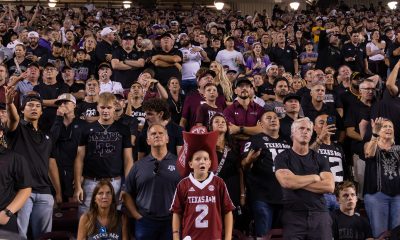
 Sports3 weeks ago
Sports3 weeks agoSEC Conference imposing a fine will create the opposite effect.
-

 Health2 weeks ago
Health2 weeks agoFlorida assault survivor shares hope for change with new mental health law
-

 Motorsports2 weeks ago
Motorsports2 weeks agoNASCAR This Week – Patriot Publishing LLC
-
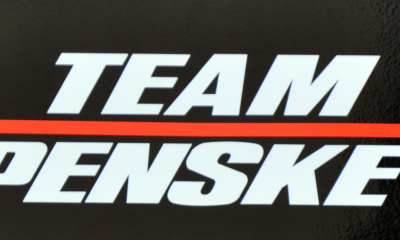
 Motorsports1 week ago
Motorsports1 week agoTeam Penske names new leadership















 BREAKING NEWS
BREAKING NEWS 














